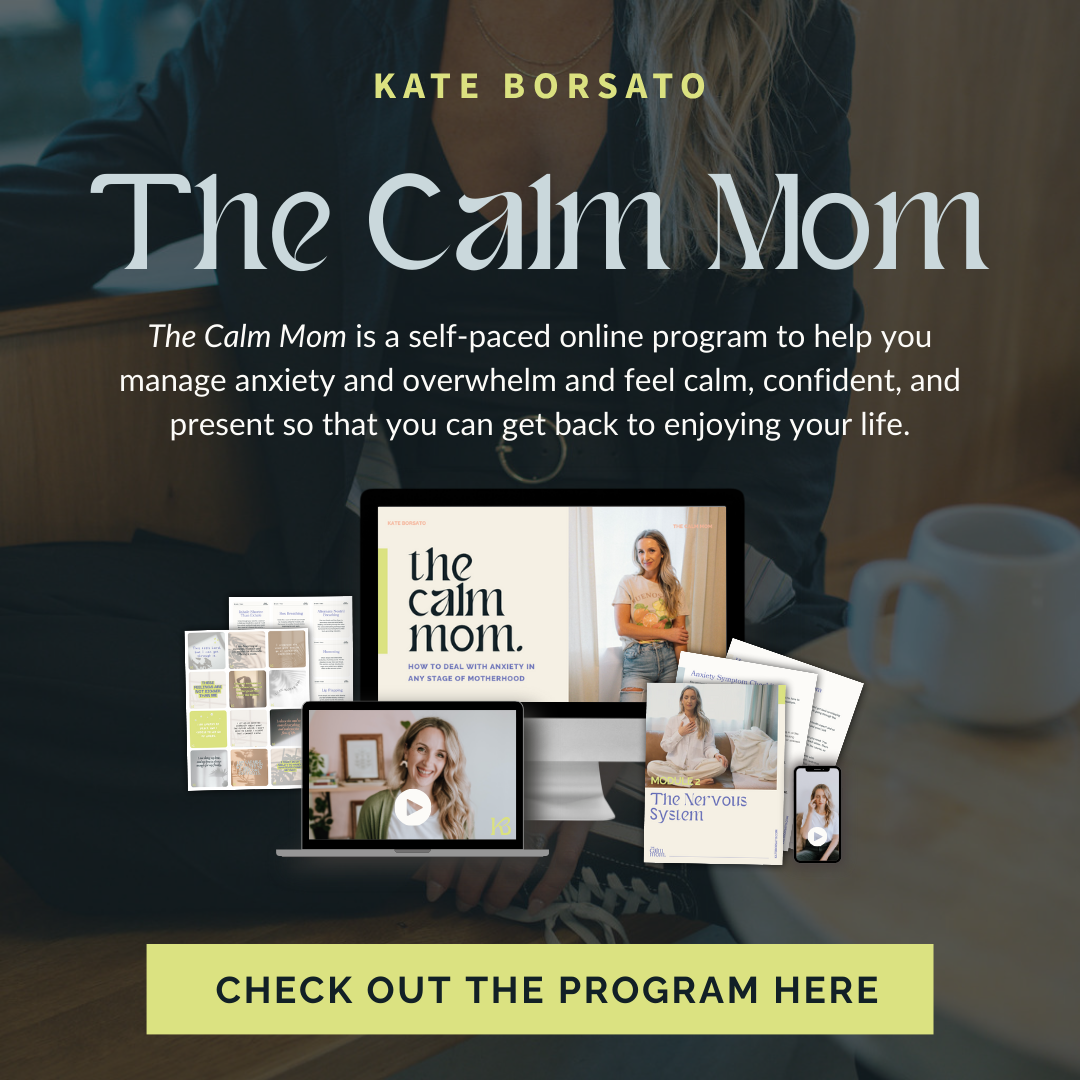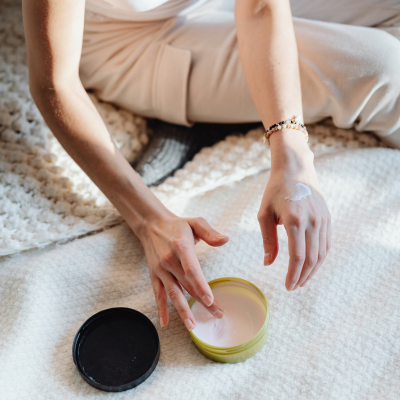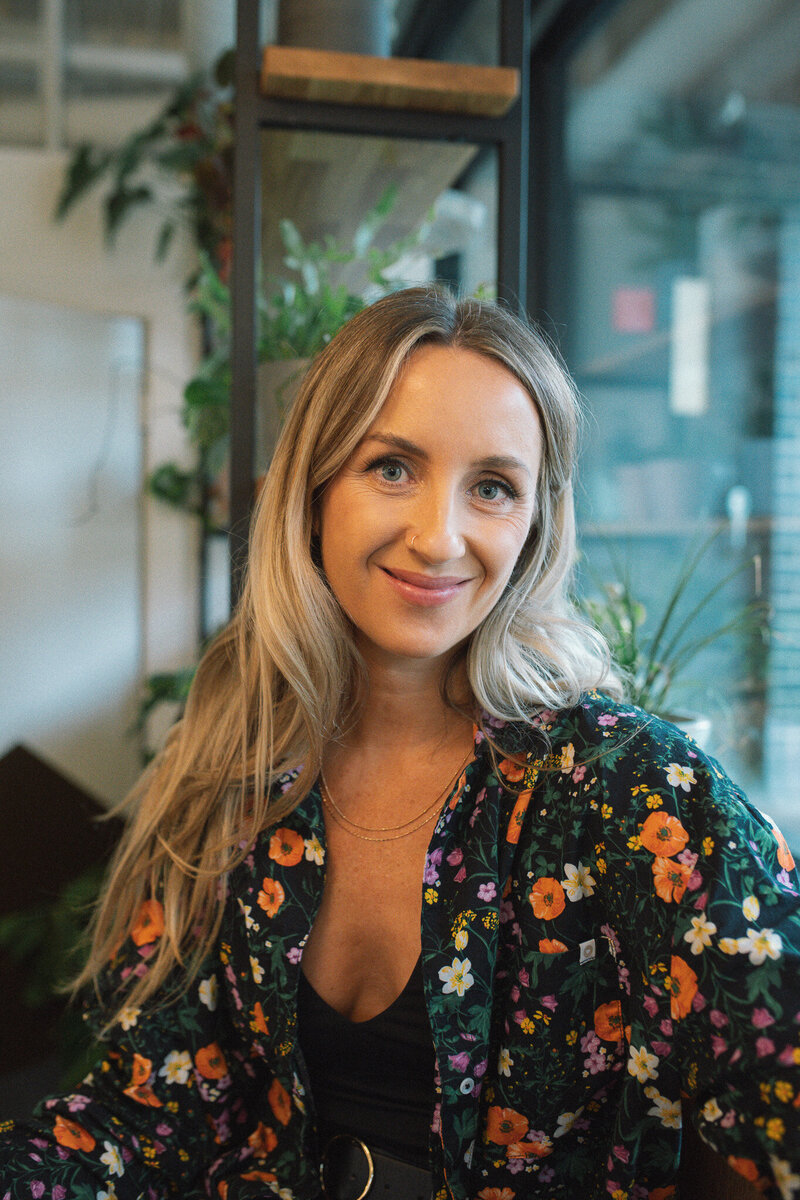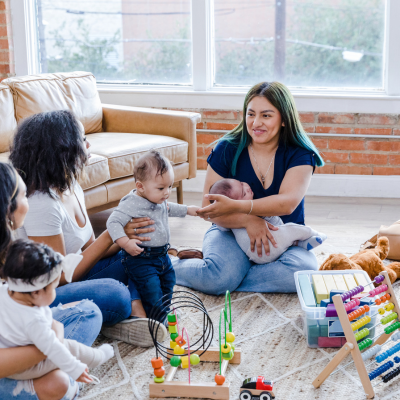“I felt so horrible for the first few months of my baby’s life. I can’t bear to go through that again!”
If you’re a mom of young kids, pregnant, or planning to become a parent soon, chances are you’ve heard of postpartum anxiety (PPA). PPA is a mental health struggle that’s just as common as postpartum depression (PPD). Yet it’s the less understood of the two. As its name suggests, PPA is a form of anxiety where the onset of symptoms happen during the perinatal period.
For some women, this anxiety can be a huge burden to deal with. For others, it can feel challenging but not something that is long-lasting or greatly impacts their overall experience in motherhood.


For the former, the difficulties with mental health can even lead to questioning whether or not the experience will repeat itself in the future. This fear can make subsequent pregnancies stressful and can sometimes even cause moms to rethink their decision to have another child.
If you’re reading this, you’re in the right place. Read through to learn about what PPA feels like, when it might set it, and what to do to prevent it as best as possible. And of course, I’ll aim to answer your question about whether you’ll get PPA a second time around.
What does postpartum anxiety feel like?
It’s important to know that everyone’s experience with postpartum anxiety is going to feel different. There’s no one-size-fits-all.
Anxiety in general can show up in a number of ways. That’s why it’s crucial to be able to tune into your own triggers, reactions, emotions, and symptoms. When do you feel most anxious? What does that feel like for you? How do you usually react? Becoming self-aware of your own thoughts, feelings, and actions will help you to better understand your experience so that you can gain better control over it.
Not sure if your anxiety is being triggered? Here are some examples of what postpartum anxiety may feel like:
- Racing heart
- Anger, snapping, or feeling a blood boiling sensation that’s disproportionate to its triggers
- Intrusive thoughts (always worrying about something bad happening to you or your baby)
- Being unable to sleep well even when you’re tired
- Having a queasy or upset stomach
- Being unable to stop focusing on the “what ifs,” overthinking, or stressing unnecessarily
- Feeling nervous about health or minor illnesses even when the worry is unwarranted
- Leaning into perfectionism and operating at unsustainable paces when stressed
- Constantly feeling irritated by your partner or kids
- Dwelling in self-comparison or self-criticism
- Feeling an unexplained sense of doom or dread.
When does postpartum anxiety start?
Both postpartum depression and postpartum anxiety start between pregnancy and the first year after giving birth. One thing that’s commonly misunderstood about PPD and PPA is that they both must set in right after giving birth. This isn’t the case. Many women report feeling completely fine until months into their child’s life when they suddenly experience a downturn in their mood or battle feelings of anxiety.
One thing to recognize is that PPA and PPD are also different from the baby blues which is a short-term and temporary dip in mood that many experience immediately after having a baby.
What are the risk factors for postpartum anxiety?
So you had postpartum anxiety once before and after going through that experience, you might be wondering to yourself, “What if it happens again?” That’s a very understandable and valid question.
Sure, it’s possible, but the tricky thing is that there is no way to know for sure. Generally speaking, there are some common factors which do put you at risk .These can include:
- Having had PPA or PPD in the past
- Already dealing with mood disorders like bipolar disorder, OCD, anxiety or depression on an ongoing basis
- Dealing with factors like grief, loss, trauma, relationship challenges, or financial instability
- If mood disorders of PPA runs in the family
- If you’re sensitive to hormonal changes
- Lack of support during the perinatal period
Setting yourself up for success
It can be scary having overcome an experience like PPA only to feel that the likelihood of a repeat experience could be in your future. That can feel like, “Oh gosh, I’m pregnant again. This time I know what it’s going to feel like after I give birth.”
Or, you may notice that you’re spending a lot of your pregnancy worrying about the toll this might take on you emotionally. “I felt so horrible for the first few months of my baby’s life. I can’t bear to go through that again!”
If your thoughts sound anything like these, here’s what I want you to keep in mind: So much is already different this time around. This is a different pregnancy, a different chapter in your life, and you’ve changed so much as well. I’m willing to bet that you’ve also gathered some mental health tools and coping skills along the way, right?
If you are worried that you’ll suffer from postpartum anxiety a second, or third time around, you also want to be as proactive as possible.
Set yourself up for success. Knowing that you may deal with anxiety once the baby comes, what are some things you can start doing now to get ahead of that.
Some common tactics that might ease postpartum anxiety could be:
-
- Movement. (Whether it’s dance, running, HIT or yoga, pick a type of movement that you love and commit to it.)
- Meditation. (It can be as quick as 10 minutes before bed.)
- Positive mindset practices, or mantras. (What’s one phrase you can connect with that will build you up?)
- EFT tapping (there’s tons of evidence to support this)
- Honing in on nutrition (Is there anything right now that is bringing more harm than good? Note: Not everything has to be “perfect.” Comfort foods can serve a purpose too!
- Establishing proper sleep hygiene. (Is your sleep schedule all over the place? What’s one small thing you can do to make for a better sleep?)
- Carving out space for your needs. (Are you putting yourself on the bottom of the priority list?)
-
- Social connection. (We need each other. If you can broaden your circle, that could bring a lot of joy and connection to your life. That can be as simple as a morning walk or a phone call.)
Additional Support:
If you’re worried about postpartum anxiety and whether or not that’s in your future, don’t try to deal with this all by yourself.
There are so many forms of support available for women in the perinatal period. If you have already dealt with postpartum anxiety that has disrupted your life, then consider the following ways to get support.
Which one or two feel most aligned with your values and lifestyle right now?
Family
Is there a family member who has offered support and who you feel comfortable leaning on? If so, it might be worth scheduling a coffee and telling them what’s on your mind. It’s more than likely that that encouraging sister in law or that trusted aunt is more than happy to be that sympathetic ear or share some of the burden.
Friends
Friends are the family we choose and this is a period of your life when you most need a confidant. Maybe for you that person is the one who has already been where you are. Maybe it’s the friend who isn’t a parent and therefore possibly more available to be in a support role.
Therapy
Therapists—namely ones qualified to work in the perinatal field—can offer a professional perspective, honour your personal needs, and speak to you without an agenda or bias that others in your life may have. A therapist in this field will be compassionate, aware of your specific experience, and have the background to truly understand your symptoms.
If you’re in Canada, check out The Perinatal Collective and set up an appointment here.
Perinatal community
Was there a group of women who you connected with during pregnancy that you can stay in touch with once your baby is born? There’s so many types of groups, meet-ups and classes for new mums. These can be a great way to feel seen, heard and validated.
Anxiety course
Depending on your lifestyle, where you live, and capacity, a self-paced mental wellness course might be for you. The Calm Mom is my bestselling program that helps mothers identify where their anxiety is coming from while walking them through the steps they need to take in order to heal. This course is for you if you’ve experienced (or are currently dealing with) postpartum anxiety, general anxiety, feelings of identity loss, intrusive thoughts about your children and more. No, this isn’t forever. Yes, you have control over what your next chapter looks like.

















Comments +